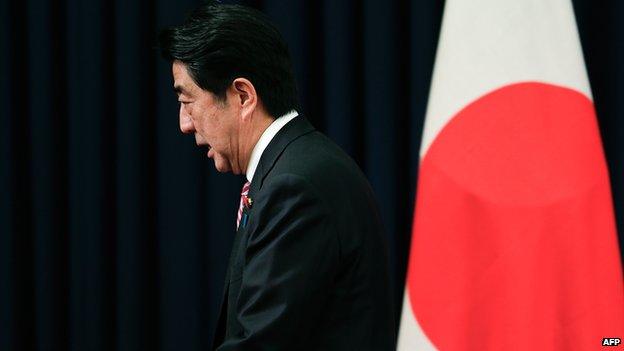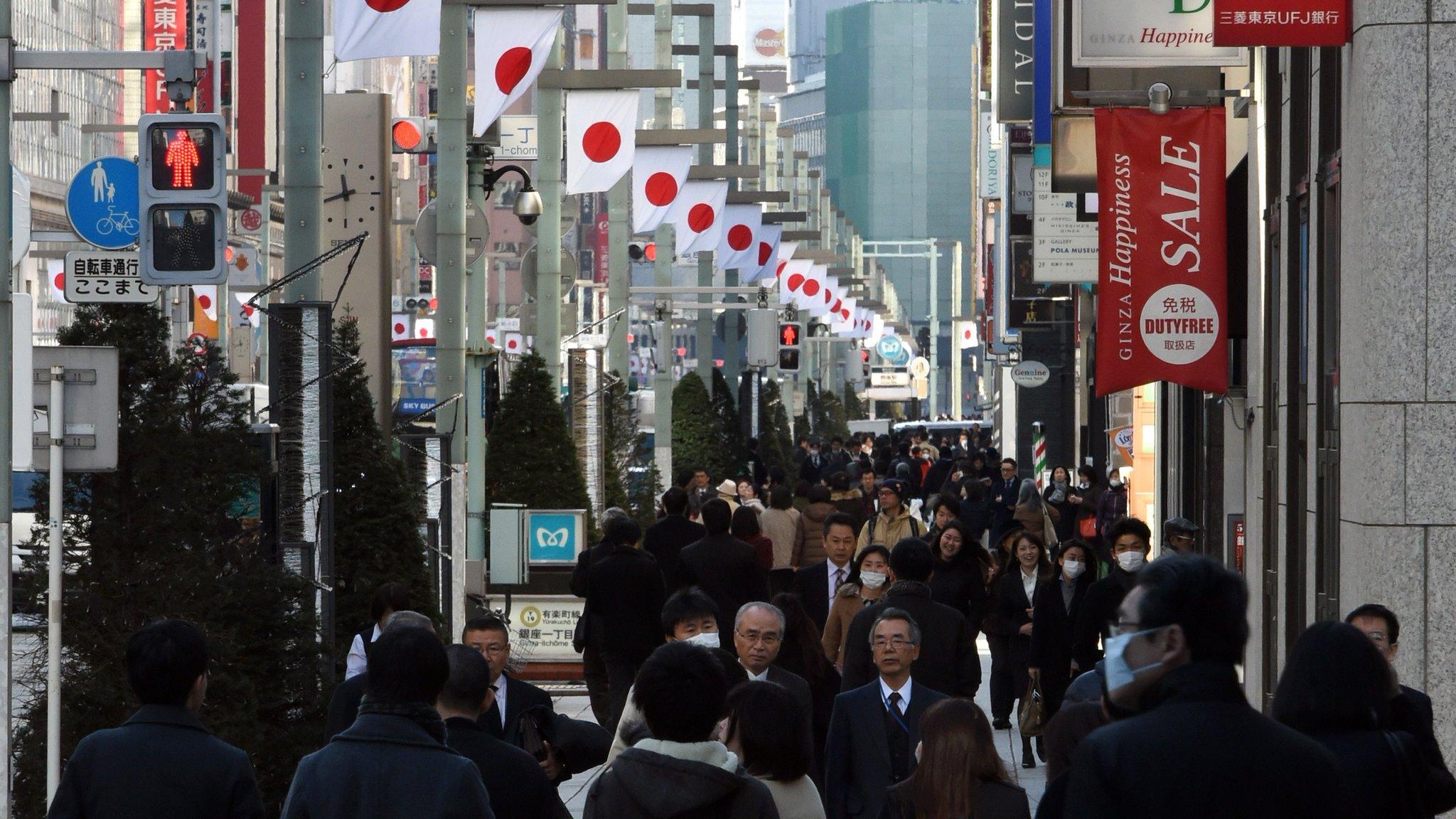IMF urges Japan to ‘reload Abenomics’ to continue recovery
- Published

Shinzo Abe's reforms still need to stand the test of time
The International Monetary Fund has warned Japan to not rely too much on the weak yen but to push for more reforms.
In its latest annual assessment, the IMF said it saw a "modest recovery".
But the global lender warned that further bold structural reforms were needed to lift growth and enable financial consolidation.
Tokyo's reform package dubbed Abenomics was kicked off in 2012 and aims at spurring economic growth.
The IMF projected growth to stabilise at around 0.7% over the medium term and expects inflation to gradually increase to around 1.5%, well below the Bank of Japan's target of 2%.
It said that while the continued decline of the yen was beneficial for Japan's economy, helping the country's exports sector, the outlook was negative with risks stemming from weak domestic demand and incomplete policies, particularly with regard to the fiscal consolidation and structural reforms.
Abenomics 'reloaded'
So far, the ongoing structural reforms had improved long-term prospects only modestly and the IMF warned the country not fall into the trap of relying on yen depreciation.
The IMF called for Abenomics - a plan introduced by Prime Minister Shinzo Abe to revive growth - to be "reloaded, so that policy shortcomings do not become a drag on growth and inflation".
The bank suggest that the next round of "high-impact structural reforms" should focus on labour supply and reduce labour market flexibility. It should also continue deregulation of the agricultural and services sector and turn the financial sector into a driver of reforms.
Currently, Mr Abe's reform package relies on the three main points of monetary stimulus, flexible fiscal policy and a strategy to boost country's growth potential.
While the programme is credited with having achieved short-term growth, the government has struggled to deregulate the job market and open up some of the country's very protected industry sectors.
- Published16 February 2015

- Published24 July 2015
